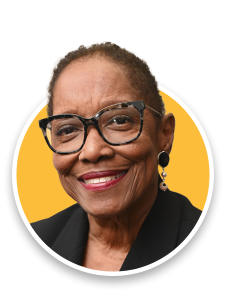By: Tory Parrish
Cherise Castello carried a hefty weight on her shoulders: the weight of sorrow and responsibilities.
After her mother died of complications related to lupus in November 2020, Castello didn’t seek mental health care to address her sometimes “crippling” depression, she says.
“(My mother) was really my rock. And a lot of things I did to make sure to take care of her,” says Castello, 25, a senior majoring in Political Science at Morgan State University.
After a campus shooting rocked the University in October, Castello was so focused on schoolwork and the several roles she held — including being an Army ROTC cadet in Morgan’s Bear Battalion, and Morgan’s student representative on the Maryland Higher Education Commission’s Mental Health Advisory Committee — that she continued “business as normal,” she says. But she admits she should have sought counseling.
That’s a nonresponse she encourages other students not to emulate, as she works with many others at Morgan to bring more awareness to the growing mental health needs of students and the services available to address those needs on campus.
“It’s OK to not be OK. And don’t let anyone make you feel that you need to feel like it’s not OK,” says Castello, who also is the Morgan Student Government Association’s health and awareness director.
Amid a mental health crisis affecting college campuses nationwide, Morgan is among the growing number of higher education institutions that have increased their mental health services.
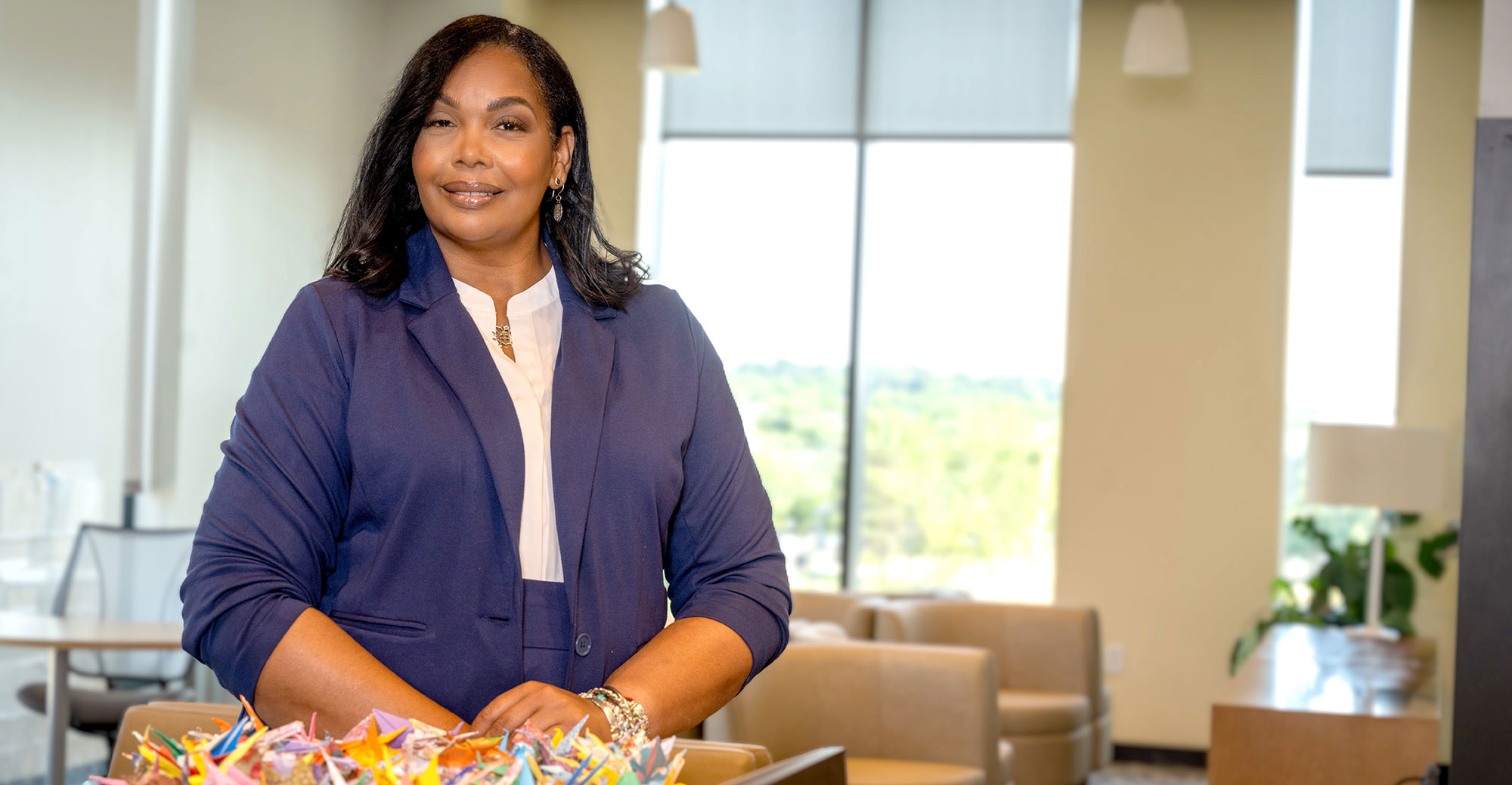
Increasing Need
Many students were left feeling disconnected during the COVID-19 pandemic isolations and quarantines that began in March 2020, says Sonya Clyburn, Psy.D., director of Morgan State’s Counseling Center since December 2021.
“We’re seeing a great need of individuals having social anxiety, depression, trauma adjustment issues. And we’re actually even seeing individuals who have more chronic mental health issues that…(were) already (existing) prior to coming to college. And it’s difficult to navigate once they get here,” says Clyburn, a licensed clinical psychologist.
Nationwide, college students’ rates of depression, anxiety and suicidal thoughts have hit all-time highs in recent years, but a record number of students are receiving therapy or counseling, according to Healthy Minds Study results released in March 2023. The study was based on survey responses from 96,000 college students on 133 campuses in the 2021–22 academic year.
The numbers — 44% of students reported symptoms of depression, 37% reported anxiety disorders, and 15% reported having seriously considered suicide in the past year — were the highest recorded rates in the history of the 15-year-old survey, which was conducted by the Healthy Minds Network for Research on Adolescent and Young Adult Mental Health, based at the University of Michigan and Boston University.
“There is also an urgent opportunity to better support the mental health of minority student populations, including LGBTQIA+ students, who are more likely, on average, to report suicidal ideation, and students of color, who are less likely, on average, to access mental health treatment,” Sarah Ketchen Lipson, Ph.D., assistant professor of health law policy and management at Boston University and a principal investigator of the study, said in a statement.
Growing Services
Some of the health care services that have been added at Morgan in recent years include virtual counseling in early 2020, a satellite counseling office in Thurgood Marshall Hall in May 2022, and wellness rooms in O’Connell Hall in December 2023 and Blount Towers in August 2023, Clyburn reports. Starting in October 2022, the Counseling Center also partnered with a third-party company, Uwill, “that assists us when we’re not in the office. They can actually see the students after-hours on the weekends and then holidays,” she adds.
Beginning last year, for the first time, Morgan included a mental health statement on its standard syllabi, University-wide, Clyburn says. Earlier, in August 2022, Morgan began partnering with the company that offers MANUAL CARE, a digital platform that provides mental and physical health resources to men on college campuses, says Danny T. Molock Jr., Ph.D., director of Morgan State’s Office of Student Life and Development.
Morgan was among four historically Black universities that in 2022 began participating in Mental Health First Aid Training, a national certification program training faculty, staff and students to identify the signs of mental health challenges or substance abuse.
Last October, Morgan partnered with the National Alliance on Mental Illness Metropolitan Baltimore to hold I Will Listen Week, an awareness campaign aimed at reducing stigmas around mental health care. After the campus shooting, the I Will Listen Week activities became more poignant, Dr. Molock says.
“There was everything from yoga in the yard to a mental health resource fair. We did a peace walk. There was an open mic. We did stress tests, depression screenings. We had a Wellness Day where we gave out smoothies and healthy snacks…just things to deal with the overall health of students,” says Molock, who adds that the University Memorial Chapel led midday meditation sessions.
A stigma against acknowledging mental health issues exists in the Black community, say Morgan officials, but they place its roots in cultural, historical and medical traumas and say the stigma is less prevalent among younger generations.
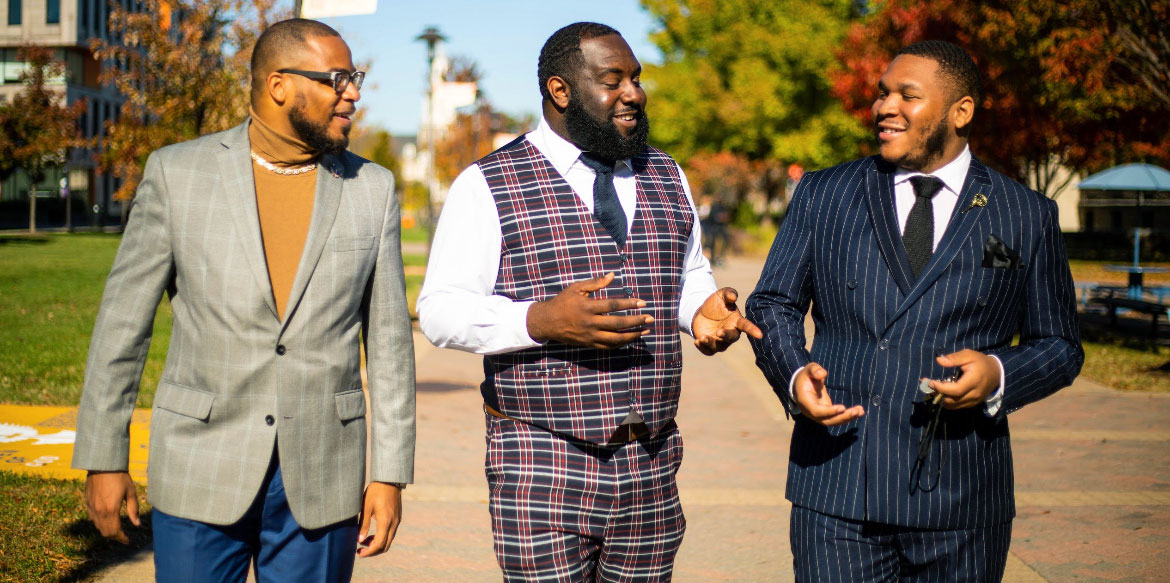
Rejecting Taboos
A stigma against acknowledging mental health issues exists in the Black community, say Morgan officials, but they place its roots in cultural, historical and medical traumas and say the stigma is less prevalent among younger generations.
The act of getting help is being normalized because of the growing awareness of the benefits of mental health care, Molock says.
“You see it on TV. You’re hearing it in the community. You’re hearing it in church. You hear it in schools. So, I think that because students are hearing it from so many different avenues, I think (they) are actually taking the time to say, ‘Hey, I think I need to…try this out,’” he says.
Also, the increasing number of mental health care professionals of color offering culturally competent care is encouraging more young, Black people to seek care, Clyburn says.
Among adults with mental illness, 52% of white adults and only 39% of Black adults received mental health care services in 2021, according to the Kaiser Family Foundation. But the Foundation attributed some of the disparity to financial barriers facing Blacks seeking to access health care, and to discriminatory treatment Black people sometimes receive.
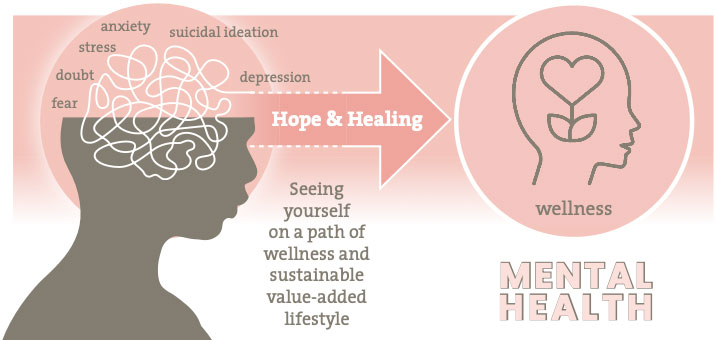
Amid a mental health crisis affecting college campuses nationwide, Morgan is among the growing number of higher education institutions that have increased their mental health services.
Body Language
Today’s college students are facing more stressors than their predecessors did 20 years ago, particularly because of the effects of the pandemic, which caused students to experience losses in multiple ways — the deaths of family members and friends, the loss of opportunities for socialization and engagement with teachers, etc., says Anna McPhatter, Ph.D., dean of Morgan’s School of Social Work.
“After COVID, we brought in a class of freshmen…who essentially had missed their junior year and senior year in high school. And that really is where a lot of socioemotional development happens, in those years, where you begin to…take on more adult-like things…. So, we had a group of students who were coming in behaving like high school sophomores,” says Dr. McPhatter. She adds that students who were Morgan freshmen the year the pandemic started also missed out on the mentorship of upperclassmen at the University during the public health crisis.
Black Americans and other people of color were disproportionately more affected by the pandemic than their white peers, research shows. Black, Hispanic and Asian communities experienced higher rates of infection and deaths, leading to more pandemic-related stressors, such as unemployment and food insecurity, and these groups had less access to mental health services, according to a 2022 study published in the Journal of Racial and Ethnic Health Disparities.
Aside from the pandemic, Black people in general face more trauma and chronic exposure than their white peers to stressors such as racism, police violence and gun violence by civilians, which affects mental health outcomes, research shows.
Those stressors can be compounded for Morgan students who are stressed by financial concerns and trying to adapt to being in new environments, McPhatter says. Older students may have additional demands, such as caring for children or other family members while being employed.
“So all of these compiled…certainly contribute to additional stressors and angst and anxiety for all of us. And an anxiety in and of itself is not a bad thing until we become overly anxious,” McPhatter says. “Anxiety really just is the body’s way of telling you that something is going on.”
Supporting Mental Health in the Broader Community
Through its School of Community Health and Policy and School of Social Work, Morgan State University works to support mental health in communities far beyond the boundaries of the campus.
“By emphasizing the significant impact of mental health beyond our university, Morgan State University’s Field Education Program plays a vital role in addressing mental health issues,” says Dean McPhatter of Morgan’s School of Social Work (SSW). “Our Field Education Program provides undergraduate and graduate students with hands-on experience in real-world community agency settings, under the guidance of experienced professional social workers. Through internships, students enhance their social work practice skills, gain theoretical knowledge, learn how to access relevant community resources on behalf of agency clientele and prepare for successful careers as urban social work practitioners and leaders.”
“We are proud to partner with over 125 mental health agencies where at least 65% of our students acquire a dynamic internship experience,” Dean McPhatter reports. “This underscores our commitment to address mental health challenges extended beyond the physical campus throughout the State of Maryland, Washington, DC, and Northern Virginia.”
“Through our students’ dedication and professional commitment, efforts and energy, creativity and innovativeness,” she adds, “we strive to make meaningful and lasting differences in the lives of children, families, individuals and communities across our region.”
‘Priority Area of Focus’
“Mental health and well-being is one of the most pressing public health issues of our time and has only been further exacerbated by our collective experience of the Covid-19 pandemic,” says Kim Dobson Sydnor, Ph.D., dean of Morgan’s School of Community Health and Policy (SCHP). “Within SCHP and its Center for Urban Health Equity (CUHE), mental health is a priority area of focus, and we understand that progress in addressing these issues cannot take place without the inclusion, collaboration and impetus of our communities, especially within communities of color. To that end, we’ve engaged community in a myriad of ways around mental health and community well-being.” To promote awareness and education, SCHP collaborated with the American Psychological Association in the summer of 2023, to bring the APA MOORE Equity in Mental Health Community Fair to Morgan and the surrounding Baltimore community, Dean Sydnor reports. More than 500 Baltimore residents attended this event and were able to connect with local mental health providers and other support services focused on promoting mental health equity for people of color. SCHP has also partnered with the Family League of Baltimore in programmatic support, to assist in funding mental health-focused, community-based organizations in their endeavors. These community-led initiatives have included work to provide mental health emergency funding to Baltimore City residents in mental health crises, mental health education to front line restaurant workers and mental wellness promotion tool kits to Baltimore City youth. CUHE is also establishing a small consortium among community groups vested in addressing mental health and related concerns among Baltimore youth. Partnership with the community in mental health-related research is another high priority, Dean Sydnor says. “In SCHP, Dr. Lorece Edwards, professor in the school, along with a team of researchers, created the Perceived Risk Hierarchy Theory, largely focused on the psychological perceptions of community — a tool to help understand risk-taking behavior as well as resistance against maladaptive behavior within urban settings. Dr. Edwards has received a patent for the theory and is working to bring it to schools and practitioners across the country.” CUHE has also planned a longitudinal study launched by Sabriya Sturdavant, Dr.P.H., associate research professor, Dean Sydnor reports. The Center will work with community agencies and schools in Baltimore in this study, to track and contextualize mental health-related issues occurring in school-aged children. “We recognize that working with communities to understand and address these issues are vital to tackling many of the health inequities that we see in communities of color,” Dean Sydnor says. “To this end, the School of Community Health and Policy and the Center for Urban Health Equity are committed to co-laboring with community, outside the walls of Morgan, to create a more healthy, whole and equitable Baltimore for all of our communities.”Our Students Say…
Morgan students speak about their interaction with clients in outpatient mental health centers, as participants in the School of Social Work’s Field Education Program.
“My experience has been such a rewarding journey of growth. I have been able to expand more on my strengths and understand my areas of improvement as a future clinician. Practicing ethical principles and professional conduct, implementing different theories in practice, conducting assessments and providing support services has allowed my experience at a mental health organization for field placement to be an amazing experience within my career development. I have had many impactful experiences this year. One youth that I was given the opportunity to work with was involved with a community-based rehabilitation program. This youth was offered mental health services each week but would not engage in meaningful conversation with any of the clinicians that were assigned. After two months of working with this youth, we were able to develop a healthy rapport, and his participation in sessions were increasing. When this youth had a hard time expressing his thoughts and feelings, I integrated a journaling tactic to allow him to write about his day/week or any situation that arose. Since we built a trusting relationship, he would allow me to read them, and I would write him back in the journal positive words of encouragement and my suggestions on the topic he wrote about. During this journey with him, I was able to also work with the educational team to assist with his requirements concerning graduation. Toward termination, the skills that he was able to learn during this process will hopefully allow him to continue prioritizing his goals and maintaining better mental health status.”
“During my internship at New Day New Start Behavioral Health, I particularly appreciated the agency’s holistic approach to client care. While my focus was primarily on substance abuse, I had the opportunity to observe and engage with their comprehensive range of services, including mental health therapy, Psychiatric Rehabilitation Program (PRP) and supported employment for both adolescents and adults. My role encompassed various responsibilities, from conducting assessments to facilitating group sessions and individual therapy sessions. I met with clients for diverse reasons, addressing issues ranging from substance abuse to mental health concerns. In many instances, clients successfully achieved their treatment goals with my assistance, although there were occasions where referrals to other agencies were necessary. Witnessing clients’ progress was deeply rewarding, as it signified a collaborative accomplishment. Throughout my interactions, I applied interventions such as Cognitive Behavioral Therapy (CBT) and Screening, Brief Intervention and Referral to Treatment (SBIRT). Supervision played a crucial role in my professional development, providing a platform to discuss concerns, receive constructive feedback, and enhance my clinical skills. Overall, my internship experience significantly contributed to my understanding of mental health practice, with invaluable insights gained from working alongside professionals like my supervisor, whose expertise in areas such as the DSM-V-TR enriched my learning journey.”
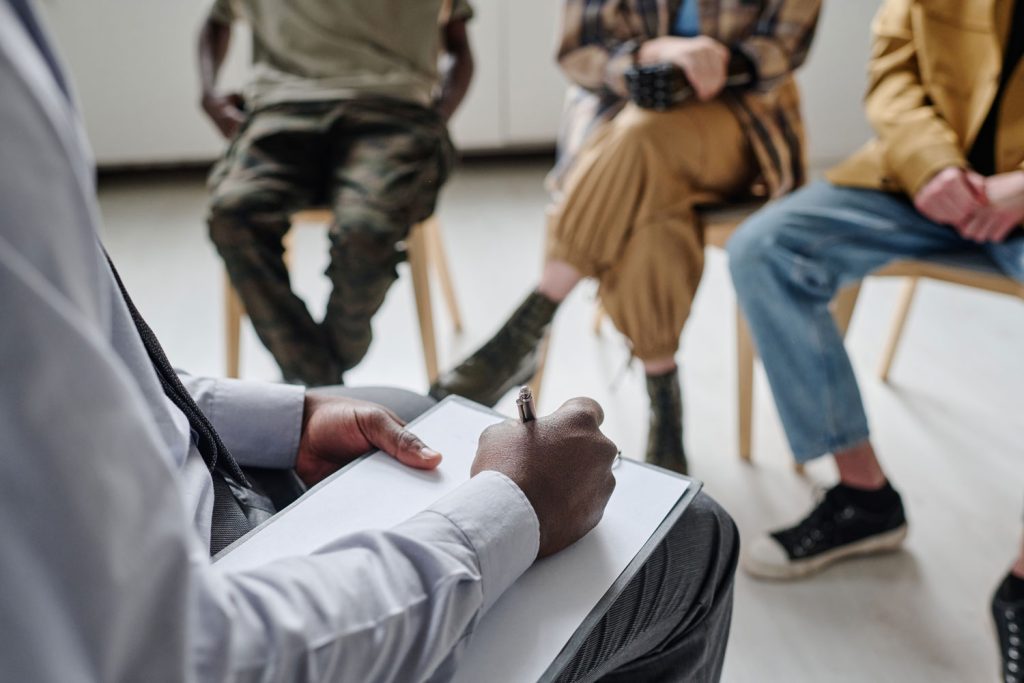
Field Education
SSW Undergraduate Student Responsibilities:- Identify client needs and introduce problem-solving skills.
- Apply effective verbal, written and virtual communication skills.
- Demonstrate case management skills and understand organizational culture and climate.
- Complete biopsychosocial assessments and actively participate in staff and organizational meetings.
- Conduct motivational interviews and group sessions.
- Complete comprehensive biopsychosocial assessments and identify probable diagnoses under appropriate supervision.
- Demonstrate advanced communication skills and identify theoretical frameworks for treatment plans.
- Research and develop interventions, techniques and additional skills to support clients’ goals.
- Lead groups focused on specific areas of interest, develop community resource networks and actively participate in direct supervision and group sessions.
- Engage in multidisciplinary meetings, process recordings and pursue professional growth opportunities.

